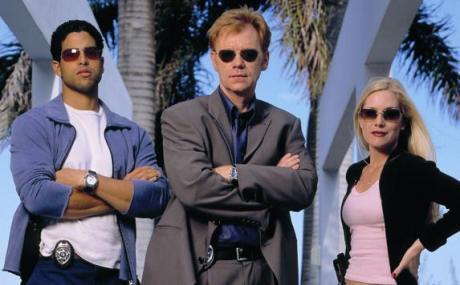
Image from forensicscience.net
A phenomenon that sweeps through today’s law enforcement and justice systems, which has its roots in, maybe surprisingly, television, the CSI Effect gets its name from the television program, CSI: Crime Scene Investigation, which first hit national television 12 years ago, featuring a team of crime scene investigators who solve murders, gather/analyze forensic evidence, interrogate suspects and eventually carry out arrests. With the popularity of CSI that generated two spinoffs (CSI: NY and CSI: Miami), to similar shows such as Bones, Numb3rs, and my favorite, Criminal Minds, and even TVB Hong Kong productions of Forensic Heroes, the world is evidently in love with the seemingly sexy, sleek, and suave nature of forensics.
However, real life and death are never as simple and clean as portrayed in such crime shows, and many crime labs simply cannot replicate the efficiency of crime scene investigators on television. In court cases, juries expect that significant knife mark, that significant fingerprint or DNA match to help them make their decision. Yet more often that not, forensic evidence is often not reliable enough o draw definite conclusions – merely inferences – and that confuses and sometimes even angers them. According to an article on US News, “Unmoved by the DNA evidence, jurors felt police should have tested “debris” found in the victim to see if it matched soil from the park. “They said they knew from CSI that police could test for that sort of thing,” Hoos said. “We had his DNA. We had his denial. It’s ridiculous.”” Perhaps one might venture to claim that the public now views themselves as some sort of expert of forensics, simply because they are avid CSI fans.
Out of the courtroom, for young adults who have grown up with the rise of the series’ franchise, there is now a proliferation of forensic science undergraduate programs, as well as the increase of college students taking courses, or majors, in forensic science. However, much criticism has been drawn from this, namely the distortion of the reality of forensic science and investigation, by presenting to students overly clear-cut and perfect answers that evidently do not exist in real life.
Finally, some criticize the CSI effect for educating criminals on how to further conceal their crimes, such as bathing their victims in bleach as a forensic counter-measure. Yet, there were claims that victims were influenced by CSI and similar television series’ to leave deliberate evidence that would eventually lead to the perpetrator’s arrest.
But let’s face it. I mean, who doesn’t enjoy the thrill and suspense of fingerprinting, or the heightening tension when policemen (who are, incidentally, also forensic scientists) burst through doors and yell for suspects to “put your hands where I can see them”? While many of these shows are a great past time, people interested in forensics or who are about to get involved in the area ought to take what’s on television with a pinch of salt. After all, as much as I’ll like to think it were all real, I realize that some of it is, at best, fiction.

